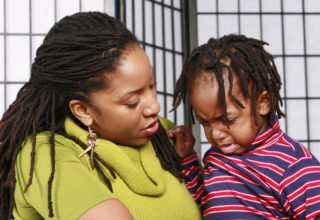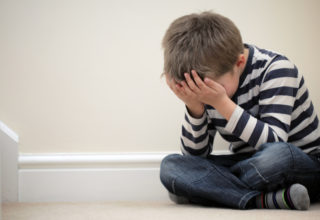Challenging Behavior
Learn how to successfully respond to your child as they grow socially and emotionally and explore new ways of expressing themselves.
Behavior Challenges Tantrums Listening + Tone of Voice Discipline Self-Regulation Impulse Control“The way we talk to children becomes their inner voice.” -Peggy O’Mara
In the heat of an emotional meltdown, it’s hard to remember what to do. So we use *SKOR* for quick recall....
By learning why young children hit – learning what is developmentally going on in their brains when they hit –...
Knowing why a child hits is the first step in handling a challenging ‘hitting’ situation. Next, how should you respond...
#1 daily challenge with children: How to get from A to Z without fighting, yelling or throwing a tantrum? Learn why...
Knowing why transitions are difficult is half the puzzle. The other half is how to get through them. Teachers go...
One of the most frequent complaints we get from parents is around whining. We get it – even as teachers....
Tattling is very common but it can be shaped by our responses to their tattling. Teach your child this simple rhyme to work...
Around the ages of four and five, children begin to tell ‘tall tales’. They may also begin to tell fibs...
Learn how to respond to your child’s challenging behavior or big emotions with empathy. Use our go-to parenting scripts for...
A practical roadmap to guide your response when your child lies. Understand the common developmental reasons for why children lie...
A simple sequence for what to do (and not to do) when your child lies, and strategies to lay the...
Children experience emotions just like adults, but they need support and guidance to: 1) Understand their emotions; and 2) Make...
Tantrums are hard to manage – for everyone. Here’s our checklist for what to do…in the first 5 minutes.
The reality is we have no control over when our child calms down. Parenting and teaching is not quick and...
It takes work and repetition, but indeed, there are things that can be done to pre-empt a tantrum and ways...
Discover how your child’s brain and body are emotionally and physically processing their anger, and strategies and tools to help...
Identify what anger looks like across different developmental ages and understand what is a typical anger expression and what is...
Key strategies and tools to use before, during and after your child’s angry outbursts – all in a simple printable...
Answers to common questions about handling a child’s angry behaviors. From, “How do I know what is normal?” to “My...
One of the most frequent questions we get from parents is, “How do I get my child to listen?” It’s...
Encouraging your child to listen can sometimes be very hard (even when you have our trusty checklist of things to...
At around age 4, you may see all sorts of dramatic language changes – talking back, harsh tones of voice,...
It’s normal to hear your child experimenting with dramatic language at around age 4 (e.g., talking back, harsh tones of...
Concrete steps to help identify why your maturing child may be using disrespectful language or tone of voice and how...
Understand the difference between discipline and punishment to change a child’s behavior in the future. Let’s focus on creating effective...
Discover how discipline and punishment differ in practice.
Learn how to appeal to your child’s thinking brain and shape their future behavior by instilling discipline (vs. imposing punishment)....
Imagine a magical world where children are internally motivated to be kind and generous. It’s doable!
Learn why maturing children struggle with challenging behavior and how they developmentally need a different approach to discipline.
How to discipline your maturing child when you encounter problematic behavior. Key in-the-moment concepts to practice, including scripts you can...
Make it easier to withstand your child’s behavioral storms – key foundational and behavioral practices you should implement before you...
Learn why it is important for your child to be able to identify their emotions, and help them build their...
Including your child in their own learning process about how to self-regulate is empowering and long-lasting. Here’s how everyday tools...
Here’s a practical tool and script to support your child’s self-regulation and emotional awareness – it provides a shared language to signal...
Make a go-to place for your child to find comfort and safety when their internal engines feel out-of-sorts. Whether you...
A go-to list of calming strategies that your child can independently use to get back on track when they feel...
A breathing exercise to help your child move through the rocky moments in their day. Easy to do and remember....
Learn how to help your child handle the expected feelings related to anxiety, and how to identify when anxiety moves...
When your child begins having anxious thoughts, empower them with practical self-help strategies and coping skills so that they can...
The benefits of mindfulness and how it can help your child thrive. How to naturally and authentically infuse mindfulness into...
Help your child to control their thoughts by making Mindful Minutes a routine. Your step-by-step guide on why, how and...
‘Sensory processing development’ is vital to understanding how children learn. It is deeply studied among early childhood experts, but not...
It may feel like a number of impulsive behaviors are seemingly normal for children. But what is ‘normal’? In this...
Brain differences make it hard for a child to control their behavior. Understanding your child’s impulsive behaviors can help you...
Empower your child to manage their emotions and regain control in heated situations with *STOP!*













































